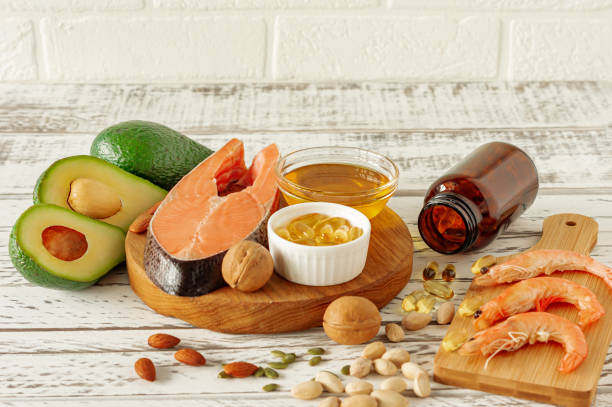Inflammation is a natural defense mechanism your body uses to heal itself after injury or infection. It helps you recover and protects you from harmful invaders. However, when inflammation becomes chronic, it can lead to serious health conditions like heart disease, diabetes, and arthritis.
The good news is that you can manage chronic inflammation with the help of an anti-inflammatory diet. By focusing on specific foods, this eating pattern helps reduce inflammation and supports overall health. But what exactly is an anti-inflammatory diet, and how can you incorporate it into your lifestyle? Let’s dive in.
Table of Contents:
-
What Is an Anti-Inflammatory Diet?
-
Health Benefits of an Anti-Inflammatory Diet
-
Supports Heart Health
-
Improves Joint Health
-
Boosts Immune Function
-
Aids in Weight Management
-
Reduces Risk of Chronic Diseases
-
-
Tips for Starting an Anti-Inflammatory Diet
-
Start Small
-
Cook at Home
-
Experiment with Spices
-
Stay Hydrated
-
Plan Your Meals
-
-
Wrapping It Up
What Is an Anti-Inflammatory Diet?
An anti-inflammatory diet isn’t a strict meal plan but rather an approach to eating that emphasizes nutrient-dense, whole foods that help combat inflammation. Think of it as a lifestyle, not just a temporary fix.
It encourages:
-
Fruits and Vegetables: Packed with antioxidants and vitamins that fight inflammation.
-
Healthy Fats: Found in olive oil, nuts, seeds, and fatty fish like salmon.
-
Whole Grains: Brown rice, quinoa, and oats are excellent options.
-
Herbs and Spices: Natural inflammation fighters like turmeric, ginger, and garlic.
-
Lean Proteins: Sources like chicken, turkey, lentils, and beans.
It avoids:
-
Processed Foods
-
Sugary Snacks and Beverages
-
Refined Carbs like white bread
-
Trans Fats and Excessive Saturated Fats

Health Benefits of an Anti-Inflammatory Diet
Switching to an anti-inflammatory diet offers much more than just relief from chronic inflammation. Here are some of the top benefits:
Supports Heart Health
Chronic inflammation can damage blood vessels, leading to heart disease. Anti-inflammatory foods like salmon, walnuts, and avocados, which are rich in omega-3 fatty acids, can help lower inflammation and reduce the risk of heart-related problems.
Improves Joint Health
If you suffer from joint pain or conditions like arthritis, an anti-inflammatory diet can make a significant difference. Foods like turmeric, leafy greens, and fatty fish can help reduce joint swelling and alleviate pain.
Boosts Immune Function
A diet full of fruits, vegetables, and whole grains can help strengthen your immune system, allowing your body to fight off illness more effectively.
Aids in Weight Management
Many anti-inflammatory foods are low in calories and high in fiber, helping you feel fuller longer. This can support healthy weight loss or maintenance.
Reduces Risk of Chronic Diseases
By lowering chronic inflammation, this diet can help reduce the risk of developing conditions like diabetes, cancer, and Alzheimer’s disease.
Tips for Starting an Anti-Inflammatory Diet
Making dietary changes may feel overwhelming, but it doesn’t have to be. Here are some simple tips to help you get started:
Start Small
There’s no need to overhaul your diet overnight. Start by adding more fruits and vegetables to your meals and replacing processed snacks with healthier options like nuts, seeds, or fresh fruit.
Cook at Home
By cooking at home, you can control the ingredients and avoid added sugars and unhealthy fats found in processed foods.
Experiment with Spices
Incorporate anti-inflammatory spices like turmeric, cinnamon, and ginger into your meals. These not only add flavor but also come with significant health benefits.
Stay Hydrated
Drinking enough water each day is essential for reducing inflammation. Herbal teas like green tea or chamomile are also known for their anti-inflammatory properties.
Plan Your Meals
Meal planning can help you stick to your anti-inflammatory goals. Prepare a shopping list with anti-inflammatory staples and plan your meals in advance to save time.
Sample Day on an Anti-Inflammatory Diet
Here’s what a typical day on an anti-inflammatory diet might look like:
-
Breakfast: Oatmeal topped with fresh berries, chia seeds, and a drizzle of honey.
-
Snack: A handful of almonds with a cup of green tea.
-
Lunch: Grilled salmon with quinoa and steamed broccoli.
-
Snack: Sliced cucumbers with hummus.
-
Dinner: Stir-fried tofu with colorful vegetables and a sprinkle of turmeric.
-
Dessert: A small piece of dark chocolate (70% cocoa or higher).
Wrapping It Up
An anti-inflammatory diet isn’t just about avoiding certain foods; it’s about adopting a lifestyle that focuses on your health and well-being. By making small, consistent changes to your eating habits, you can reduce chronic inflammation, improve your energy levels, and lower your risk of various diseases.









